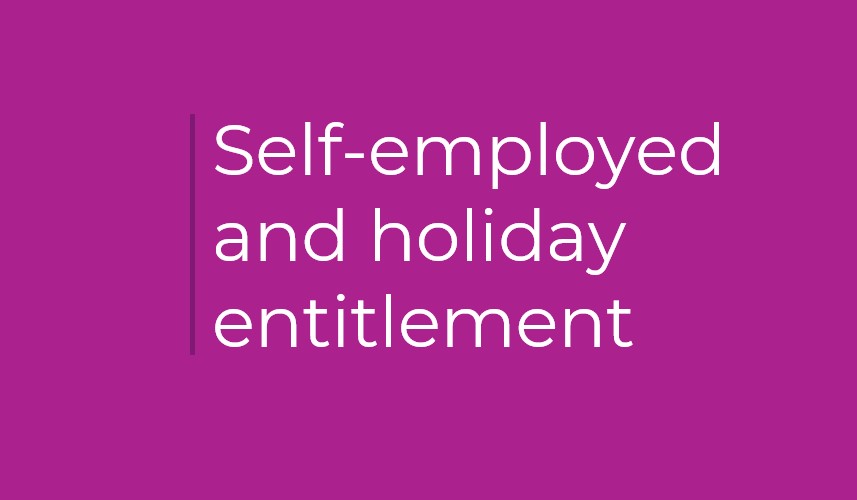Insights
Gary Smith claimed he was owed holiday pay by Pimlico Plumbers after the Supreme Court ruled that he was a worker and not self-employed and has successfully appealed to the Court of Appeal against a ruling made by the Employment Appeal Tribunal last year that his claim was out of time.
As a result of this significant Supreme Court judgement, employers are potentially liable to claims by workers for pay in respect of up to 4 weeks’ paid leave for every year worked without limitation, where such leave has been taken but not paid. It’s not all bad news for employers though, they could successfully defend any possible claims if they can demonstrate that they gave a worker the opportunity to take holiday, encouraged the worker to take holiday and informed the worker that the right would be lost at the end of the holiday year.
Before this significant judgment, the position confirmed in the King v Sash Window Workshop Ltd case was taken to limit this principle only to holiday which had not been taken, but this recent judgement extends the principle to cover holiday taken by the worker for which payment has not been made by the employer hence Gary Smith’s claim for £74,000 of holiday pay succeeding.
What are the implications for employers?
- This decision has major implications for employers that do not provide paid holiday to staff, having wrongly treated them as self-employed.
- These employers could face significant financial claims for accrued holiday pay. The decision is likely to impact gig-economy employers, and others where there is uncertainty over the employment status of people taken on as contractors.
- In addition to claiming for holiday that they did not take, workers can now claim for leave that they did take, but which was unpaid. The entitlement to four weeks' paid leave (under reg.13 of the Working Time Regulations 1998) will carry over each year and become payable at the end of their engagement.
- Given the significance of this judgment, it is likely that this decision will be appealed to the Supreme Court, which could reach a different decision.
What do you need to do now?
Employers are advised to review their existing self-employed contractor and casual/irregular hours worker arrangements carefully to assess the level of risk regarding any historic holiday pay entitlements and any potential claims. If you would like to discuss further the possible impacts of this significant ruling on your business, please speak with your dedicated HR Consultant.






